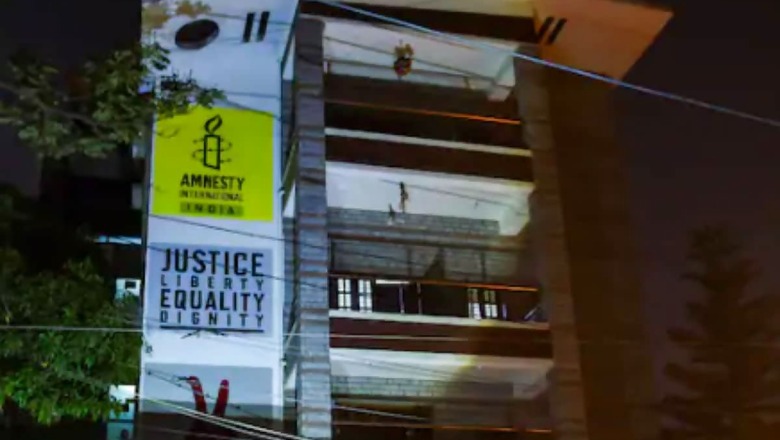
views
Human rights organisation Amnesty International India on Tuesday announced that it will be shutting its operations in the country after it was “compelled to let go off staff in India” and halt all its research work as all its bank accounts have been frozen.
In a statement, the organisation called the government’s move to freeze its bank accounts a witch-hunt “over unfounded and motivated allegations”.
“The complete freezing of Amnesty International India’s bank accounts by the government of India, which it came to know on 10 September, brings all the work being done by the organization to a grinding halt. This is the latest in the incessant witch-hunt of human rights organizations by the Government of India over unfounded and motivated allegations,” it said.
#NEWS: Amnesty International India Halts Its Work On Upholding Human Rights In India Due To Reprisal From Government Of Indiahttps://t.co/W7IbP4CKDq— Amnesty India (@AIIndia) September 29, 2020
The move comes a month after the organisation accused the Delhi police of complicity in the riots that broke out the national capital in February.
Avinash Kumar, Executive Director, Amnesty International India said the continuing crackdown on the organisation over the last two years and the complete freezing of bank accounts is “not accidental”.
“The constant harassment by government agencies including the Enforcement Directorate is a result of our unequivocal calls for transparency in the government, more recently for accountability of the Delhi police and the Government of India regarding the grave human rights violations in Delhi riots and Jammu & Kashmir. For a movement that has done nothing but raise its voices against injustice, this latest attack is akin to freezing dissent,” he said.
In August, an investigation conducted by the organisation alleged that there was a “denial of medical services to victims, failure to rescue them, excessive and arbitrary use of force on protesters and differential treatment of assemblies, no response to multiple calls leaving the survivors to fend for themselves over the period of six days of violence in Delhi.”
Amnesty is being investigated by the Enforcement Directorate over alleged irregularities in receiving foreign funds. According to the home ministry, the human rights organisation “got money into India through the FDI (Foreign Direct Investment) route,” which is not allowed in the case of non-profits.
In a statement, Amnesty recalled the series of events where it faced the law enforcing agencies.
In October 2018, Amnesty International India was raided by the ED. The residence of a Director was also raided. After the raid, the bank accounts were also frozen by the ED.
The human rights body said that in early 2019, the Income Tax Department started sending investigative letters to more than 30 small regular donors, adversely affecting the fundraising campaigns.
In June 2019, it was denied permission to hold the press conference launch in Srinagar to release its third ‘Lawless Law’ report on the misuse and abuse of Public Safety Act in Jammu and Kashmir.
On 22 October 2019, Amnesty International testified at the US Congressional hearing on the situation of human rights in South Asia with specific focus on Jammu and Kashmir since the unilateral abrogation of Article 370 of the Constitution of India. Two weeks after the testimony and amid rumours of impending arrests of the organizations top officials, the offices of Amnesty International India and the residence of one of its directors were raided again by the CBI under FCRA and PMLA.
In April 2020, two days after it called upon the UP government to “stop its intimidation of journalists, the Cyber Crime Police Station, Lucknow, Uttar Pradesh notified Twitter to furnish information about Amnesty International India’s Twitter account @AIIndia.
On 28 August 2020, marking the six-month anniversary of the riots that took place in North-East Delhi in February 2020, Amnesty International India released an investigative brief “on the complicity of Delhi police in the riots” which claimed the lives of at least 53 people, mostly from the minority Muslim community.




















Comments
0 comment